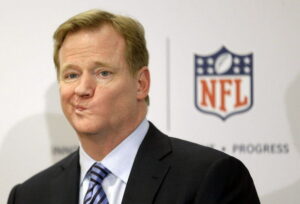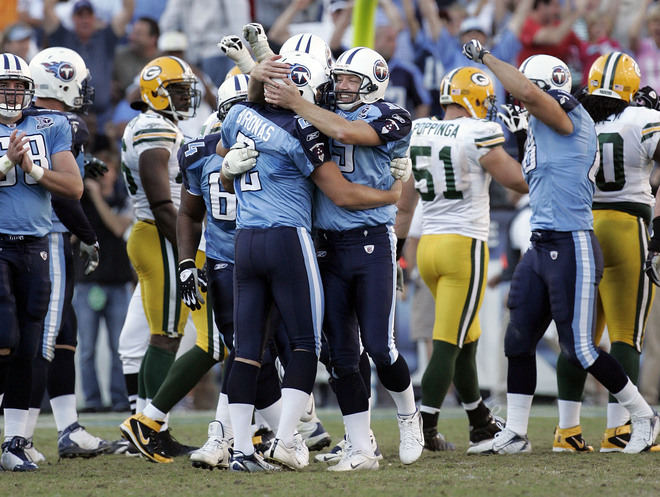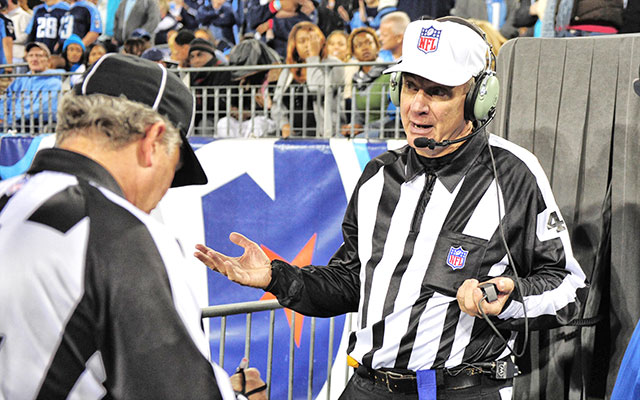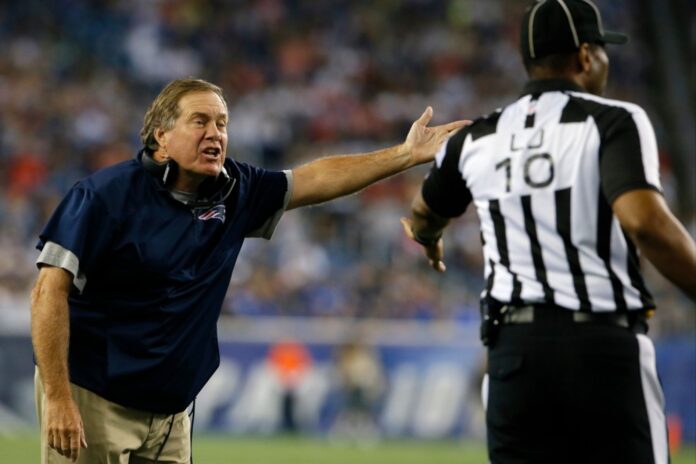League Had Chance to Improve Game Integrity, Ignored It
The NFL owners meetings turned out to be relatively uneventful.
Heading into the week, there was anticipation of an expansion in the use of replay, but the specific direction was uncertain due to various proposals being considered.
The potential enhancements in replay procedures ranged from reviewing personal fouls, illegal hits, and penalties, among other things.
Another suggestion, put forth by Bill Belichick of the New England Patriots, involved incorporating fixed cameras in critical areas like the goal line, ensuring officials had reliable support for crucial judgment calls.

Currently, these replay angles depend on the movement of broadcast cameras, resulting in occasional uncertainty in making definitive decisions.
Considering the league’s dedication to precision, especially evident in establishing a central command replay center a year ago, it only seems logical to implement fixed cameras.
This would align with the league’s commitment to ensuring accurate calls in a sport with a defined scoring area.
When NFL commissioner Roger Goodell emphasizes “game integrity” as a primary driver, yet owners cite cost as a reason for not endorsing a proposal that undeniably enhances game integrity, there’s evident a discrepancy in the narrative.
Instances of public statements not aligning with actual decisions have certainly been a recurring issue for the league offices.
A team executive, wishing to remain anonymous, informed USA TODAY Sports earlier this week that teams were informed about the potential cost of installing the cameras, which could reach up to $20 million—a substantial expense, without a doubt.
However, when considering it in the context of a business that generates over $11 billion in annual revenues, perhaps it’s not as substantial as it might initially seem.
After all the anticipation, the only notable change to replay is as follows:
- Game clock review: Amendment to rule 15, section 2, article 4. Game officials will now have the authority to review situations where the game clock seems to have expired erroneously and rectify it by adding time if necessary.
Really? The game clock is a significant improvement?
I understand there’s room for adjusting how replay is utilized, but seriously!
Given the technology we have at our disposal, we should be implementing comprehensive replay immediately, as long as it doesn’t disrupt the game’s flow.
The fundamental desire for every fan, player, and coach is to get the call right. At this juncture, it’s evident that this isn’t the league’s primary focus.
As a player, it’s frustrating to witness the league only opting for correctness selectively.
I had an incident as a player where a video replay could have been immensely beneficial for me and our team.
Back in 2008, during my time with the Green Bay Packers, we were up against a formidable Tennessee Titans team that ultimately clinched their division.
The pivotal play in question occurred on a critical third-and-long at midfield.
The Titans were struggling to advance against our defense all day, and on this particular play, my assignment was to bull-rush the tackle.
I successfully pushed the tackle into the quarterback, leading to an incomplete pass. Immediately afterward, the tackle struck me in the facemask.

At that moment, my instincts for fight or flight took over. I retaliated by delivering a right uppercut to the lineman’s double chin.
Unfortunately, the official only saw me throwing a punch and penalized us 15 yards.
This put Tennessee in field-goal range, and they scored three points, ultimately defeating us by – as you might have guessed – three points in overtime.
To say the least, I wasn’t very well-liked after the game. However, if there had been a remote official who could have reviewed the actual events, they would have seen I was simply defending myself.
This is precisely what often occurs in most personal foul cases. Officials are focused on other aspects of the game, and when they hear a scuffle, they turn their attention, usually only catching the aftermath.
Those truly at fault appear unscathed, while those practicing self-defense are usually penalized.
This is a well-known and frequent scenario on a football field. They have the capability to make it right now, yet they choose not to.
Game integrity? Not at all.

In my situation, the penalties might have ended up canceling each other out, but the game’s outcome shouldn’t have hinged on the officials’ partial perspective.
Incorporating replay in a personal foul scenario, as one of the proposals dismissed this week, would have allowed them to make the correct call.
I’m not suggesting we review every single play and every incident. That would be excessive and disrupt the game’s flow.
However, why not empower teams to use the readily available resources in the most critical areas of the field and during the most crucial moments?
I firmly believe that Belichick had a valid reason to express his frustration and admonish the owners for not allocating a small portion of their multibillion-dollar business to add extra cameras and utilize them to improve the officials’ capacity to make accurate calls.
Hopefully, replay will eventually be employed more extensively to elevate the game.
However, given the current pace of the owners, it might take years before it’s fully maximized.
And regardless of what the commissioner might assert, “game integrity” continues to suffer as a result.

